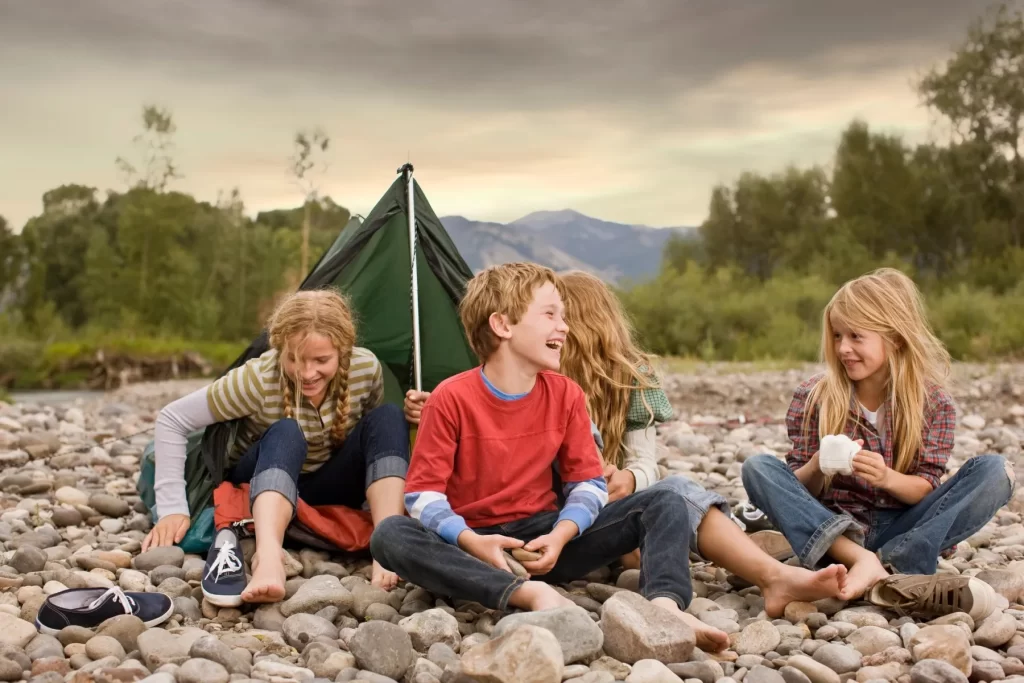Car Camping Tips for Autistic Kids

Car Camping Tips for Autistic Kids
Car camping can be an incredible way to enjoy the great outdoors with your family. It offers a unique blend of adventure and comfort, making it accessible for children with autism. With a little preparation and the right mindset, you can ensure a fun and enjoyable experience for everyone. Here are some tips to help you get started.
1. Plan Ahead
Planning is key when it comes to car camping with autistic kids. Choose a campsite that is known for being family-friendly and has good facilities. Look for sites with amenities like bathrooms, showers, and easy access to your car. Having these conveniences close by can make the experience less stressful.
2. Familiarize Your Child with the Experience
Before heading out, familiarize your child with the concept of camping. Show them pictures and videos of the campsite. If possible, visit the site beforehand to help them become comfortable with the surroundings. Discuss what to expect and go over the activities you will be doing.
3. Create a Visual Schedule
Children with autism often thrive on routine and predictability. Create a visual schedule of the camping trip, outlining each activity and when it will happen. This can include waking up, mealtimes, hikes, and bedtime. Having a clear plan can reduce anxiety and help your child feel more in control.
4. Pack Familiar Items
Bring along familiar items from home to provide comfort and a sense of security. This can include favorite toys, blankets, or pillows. These items can help ease the transition to a new environment and make your child feel more at ease.
5. Prepare for Sensory Needs
Camping involves a variety of sensory experiences. Be prepared for your child’s sensory needs by packing items like noise-canceling headphones, sunglasses, or fidget toys. If your child is sensitive to certain textures, bring along their preferred clothing and bedding.
6. Choose the Right Gear
Investing in the right camping gear can make a big difference. Choose a tent that is easy to set up and spacious enough for your family. Consider a tent with multiple rooms to create a quiet space for your child if they need a break. Comfortable sleeping bags and inflatable mattresses can also help ensure a good night’s sleep.
7. Keep Meals Simple and Familiar
Meals can be a challenge while camping, but keeping them simple and familiar can make things easier. Pack foods that your child enjoys and is familiar with. Consider preparing meals ahead of time that can be easily heated up at the campsite. Don’t forget to bring plenty of snacks and drinks to keep everyone hydrated and happy.
8. Practice Patience and Flexibility
Flexibility is crucial when camping with autistic kids. Things might not always go as planned, and that’s okay. Be patient and ready to adapt your plans if needed. If your child needs a break or is feeling overwhelmed, take a moment to relax and regroup.
9. Engage in Fun Activities
Car camping offers a range of activities that can be both fun and therapeutic for autistic kids. Nature walks, bird watching, and stargazing can be calming and engaging. Bring along some favorite outdoor toys like balls, bubbles, or kites. Encourage your child to explore and enjoy the natural surroundings at their own pace.
10. Safety First
Safety is always a priority, especially when camping. Make sure to keep a close eye on your child and be aware of any potential hazards at the campsite. Pack a first aid kit and any necessary medications. It’s also a good idea to inform the campsite staff about your child’s needs in case of an emergency.
11. Practice Camping at Home
Before your trip, consider having a practice camping night at home. Set up the tent in your backyard or even in your living room. This can help your child get used to the idea of sleeping in a tent and using camping gear. It’s a great way to address any concerns or fears in a familiar environment.
12. Encourage Independence
Camping can be a wonderful opportunity to encourage independence. Involve your child in the planning process and give them age-appropriate responsibilities. This can include helping to set up the tent, preparing meals, or gathering firewood. These small tasks can boost their confidence and sense of accomplishment.
13. Build a Supportive Community
Connecting with other families who have children with autism can provide valuable support and advice. Look for online forums, social media groups, or local meetups where you can share experiences and tips. You might even find families who are interested in joining you for a camping trip, creating a supportive and understanding environment for everyone.
14. Reflect and Celebrate
After your camping trip, take some time to reflect on the experience. Discuss what went well and any challenges you faced. Celebrate the achievements, no matter how small. This reflection can help you prepare for future trips and continue building positive experiences for your child.
Car camping with autistic kids can be a rewarding and enriching experience. With careful planning, flexibility, and a positive attitude, you can create wonderful memories that your family will cherish for years to come. Embrace the adventure, and enjoy the journey together.
